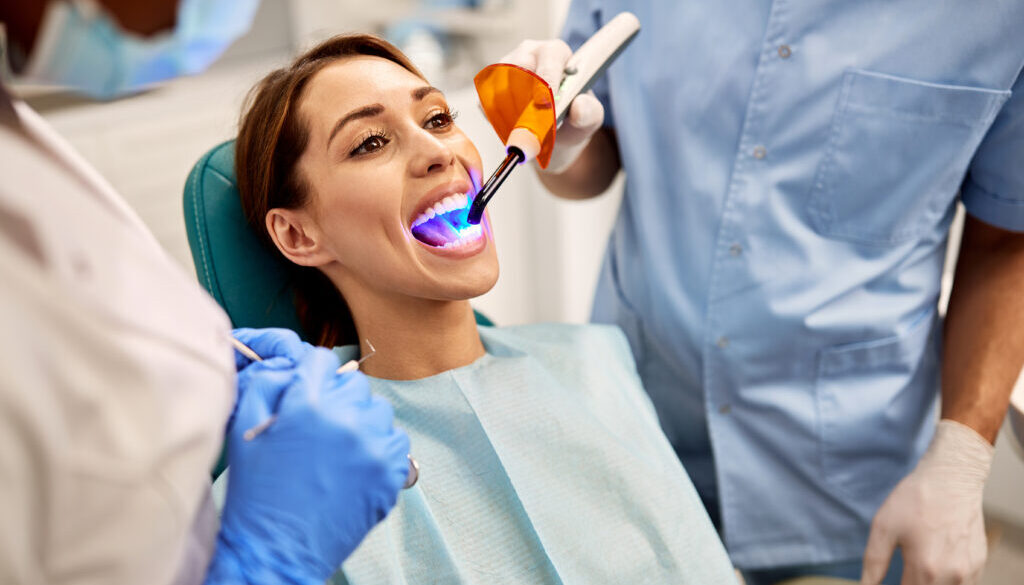Laser Dentistry: Revolutionizing Oral Health Care
Laser dentistry may sound like something from a science-fiction movie, but the truth is, this technology has been transforming the dental industry and the experiences of countless patients for decades. If you’re someone who has been avoiding the dentist’s chair due to fear or phobia, laser dentistry could very well be the game-changer you’ve been waiting for. Here, we will explore the ins and outs of laser dentistry, examining why it’s becoming more popular, understanding its applications, and debunking any myths that might be holding you back from a truly pain-free dental experience.
What Is Laser Dentistry?
At its core, laser dentistry involves using lasers to perform a variety of dental procedures. This high-tech treatment offers a multitude of benefits, including less pain, shorter recovery times, and in some cases, no need for anesthesia. What’s more, laser dentistry appeals to patients who want a more holistic approach to their dental care, as it often involves less cutting and drilling than traditional methods. The precision of dental lasers means that practitioners can target only the necessary areas, preserving more of the patient’s natural tooth structure.
The Advantages of Laser Dentistry
Painless Procedures
One of the most significant benefits of laser dentistry is its potential to eliminate or drastically reduce the need for anesthesia. Lasers can seal nerve endings, minimizing postoperative discomfort even for more invasive procedures. This is a game-changer for individuals with a low pain threshold or dental phobias and can make necessary treatments more accessible for them.
Shortened Recovery Times
By minimizing damage to the surrounding tissue, protocols involving lasers allow for much faster healing. This can mean shorter recovery times and less disruption to your daily routine, making laser dentistry particularly useful for busy professionals or on-the-go parents.
Reducing the Risk of Infection
The high-energy light beam emitted from dental lasers sterilizes the area being treated, reducing the risk of bacterial infections. This benefit is especially critical in oral surgeries, where the mouth’s natural bacteria can exacerbate healing complications.
Preserving More Natural Tooth Structure
Laser technology is incredibly precise, allowing dentists to target decay or other issues with minimal disturbance to the rest of the tooth. This not only helps conserve the patient’s teeth but also promotes better long-term oral health.
Minimizing Bleeding
The cauterizing effect of lasers helps to clot the exposed blood vessels, thereby minimizing bleeding during and after the procedure. This means a clearer field of vision for the dentist and less mess for the patient to deal with afterward.
Versatility
Laser dentistry is used in a variety of procedures, such as treating cavities, gum disease, teeth whitening, and performing biopsies. Its versatility means it can replace many traditional dental tools, simplifying and improving processes across the board.
Common Uses of Laser Dentistry
Treating Tooth Decay (Cavities)
For patients with dental anxiety, the sound and feeling of a drill can be a major deterrent to seeking treatment. Laser technology allows for easier and less painful cavity preparation, sometimes eliminating the need for anesthesia altogether.
Gum Reshaping
Gum reshaping, or gingivectomy, is a procedure used to remove excess gum tissue, often due to aesthetics or periodontal disease. With lasers, this can be done with high precision and minimal bleeding.
Root Canal Therapy
Laser dentistry is changing the game for root canal procedures. It allows for better disinfection of the tooth’s canals, reducing the chances of infection recurring and often meaning a more comfortable experience for the patient.
Biopsy or Lesion Removal
Dentists can use lasers to remove oral lesions or biopsy suspicious areas. This process is quick and can be more comfortable for the patient compared to traditional scalpel methods.
Teeth Whitening
Laser-assisted teeth whitening is a popular cosmetic dental procedure that accelerates the bleaching process. It can provide faster and more dramatic results, often in a single visit to the dentist’s office.
TMJ Treatment
For those suffering from temporomandibular joint (TMJ) pain, laser dentistry can offer a non-invasive option for pain relief and to reduce inflammation.
Nerve Regeneration
Low-intensity soft-tissue lasers can promote nerve regeneration in the case of injury, potentially reducing the painful effects of conditions like nerve-related tooth pain.
Laser Dentistry: Lasers Leading the Charge
Laser dentistry is carving the way to a less invasive, more comfortable, and ultimately, a healthier oral future. As technology continues to advance, we can expect even more applications for lasers in dentistry, further pushing the boundaries of what we think is possible without pain.
Whether you’re considering laser dentistry for a specific procedure or you’re just curious about the possibilities, knowing what it can offer is the first step towards a pain-free dental experience. Don’t wait until a small problem becomes a large one — learn about the laser options available to you and start smiling with comfort and confidence.
Make an Appointment with Young Family Dental
If you are interested in learning more about laser dentistry and how it can benefit your oral health, contact Young Family Dental today to schedule a consultation. Our team of experienced dental professionals is dedicated to providing the most advanced and comfortable treatments for our patients. Experience the difference that laser dentistry can make in your next dental procedure.




